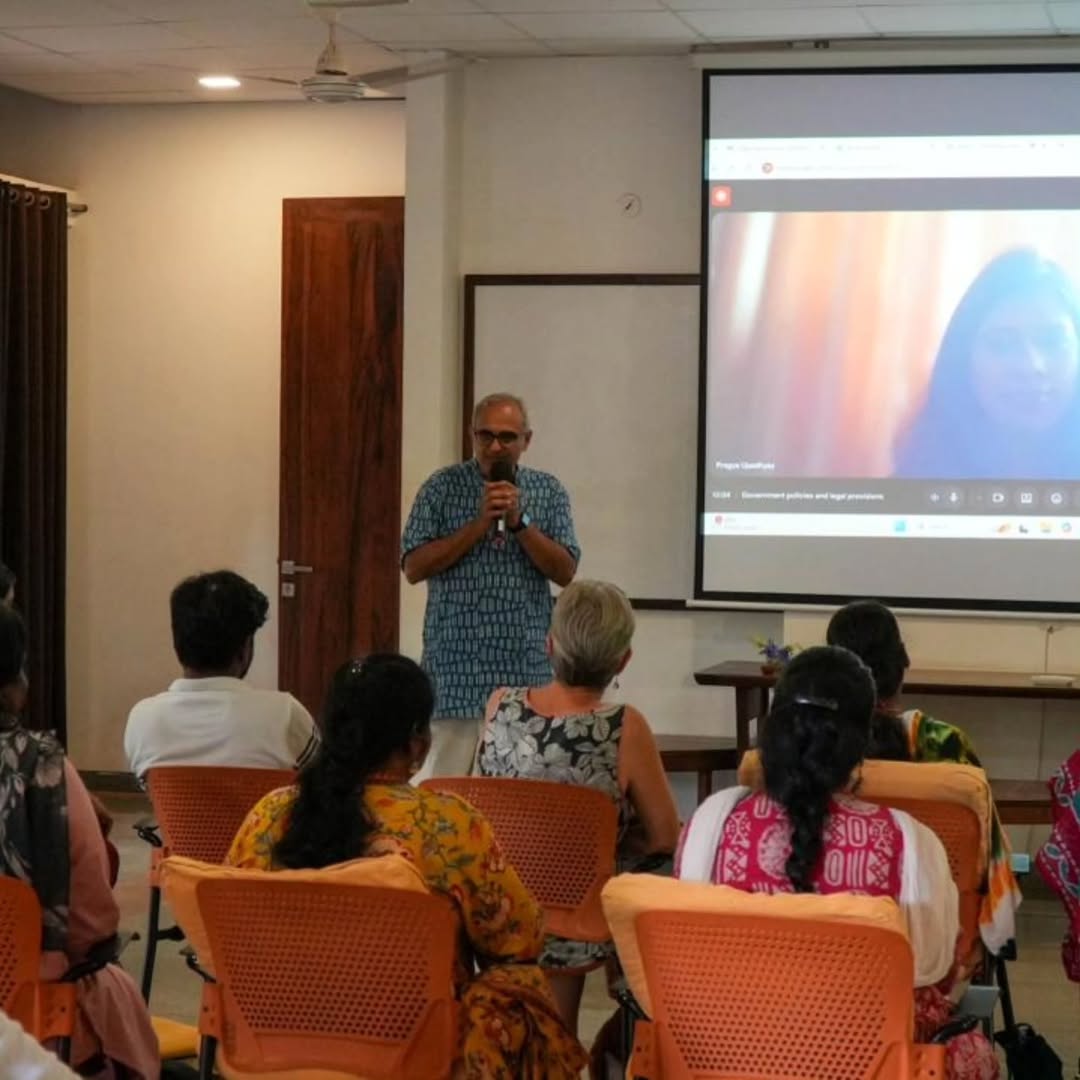Auroville a universal township at the service of humanity. There are many units and trusts under Auroville that work on different aspects of human progress and needs.
C3STREAM Land Designs (C3SLD) is a commercial unit under Swagatham Trust of Auroville Foundation. As our tag line learn, grow, work and teach suggests we provide rural youth an opportunity to engage with high tech employment while supporting children and youth in the community learn.
The values of the organization are responsibility, equality and courage to create. We use the lens of these values to see alignment in what we do, the culture we create or change and who we are being.
C3SLD is a learning organization that is creating a new model for businesses – not working on profits or losses, but rather on trust and long-term relationships based on transparent budgets. The organization thrives on partnership with Aura Semiconductor Pvt. Ltd. which supports the finances for individuals, administration, campus, as well as contributions the community (schools, city, etc). This partnership with a tech leader provides engaging employment for youth in the areas of – embedded systems software, driver software, VLSI design automation, analog VLSI layout, and analog and mixed signal modeling and its simulation.
STEM Land is a sister organization of C3STREAM Land Designs under SAIIER (Sri Aurobindo International Institute of Educational Research) where everyone volunteers a few hours of their time every day to support over 300 children and 50 youth in STEAM (Science Technology Engineering Arts and Mathematics) education in schools. Here is a video about STEM Land.
STEM Land is open learning space and welcomes to all who want to learn and build things and offers a variety of learning opportunities like programming, electronics, making and tinkering, strategy games, puzzles and a lot more. STEM Land partners with Auroville schools like Isai Ambalam, Udavi school, Aikiyam school to support over 300 children in an intensive fashion. We also offer short (week long) courses on 3D printing, robotics and drones, (longer) graduate-level courses in electronics, programming in the evenings. We also bring together the east and the west integrating IKS in Mathematics along with virtual manipulatives and visual programming training teachers in the same. As part of SAIIER we also conduct educational research on how children, youth and their teachers progress in skills, competencies and inner capacities. We also conduct teacher training programs for the same.
STEM Land runs a Becoming and Being a Shifu (Master) program a one-year residential program for youth to develop skills, competencies, and inner capacities. The program is unique in supporting the youth discover themselves through meditation, leadership, reading, and reflection. They get exposure to various skills that we excel at (described before). Each Shifuian (as they call themselves) has one of the team members act as an individual mentor. The program free of cost that started with a seed donation and when the Shifuians completed the program and started working with us they contributed to support the next set of youth to go through the program over 20 youth have gone through the program so far.
Along with the Auroville Institute of Applied Technology we offer a 3 year B.Voc (Bachelor of Vocation) courses in “Computer Science and Machine Learning” and “Applied Electronics and Chip Design” where we partner with the academic teachers to create a novel program similar to the informal program we have in the Shifu program within their undergraduate. This is certified by Pondicherry University.
A snapshot of what C3STREAM Land is captured as a Conscious Full Spectrum Model shown below.
This organization has evolved over the years from Aura Auro Design a research project of ) on whether a learning organization can be sustainable in real world challenges, then as STEM Land a sub-unit of SAIIER to its current form C3STREAM Land Designs a commercial unit. The sister organization STEM Land continues to be an educational and educational research organization under SAIIER.




